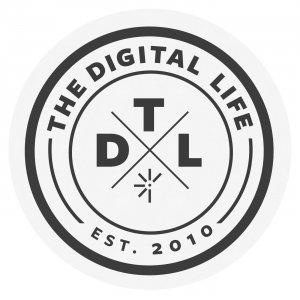The Digital Life

Healthcare Experience and the IoT
Jon: Welcome to Episode 105 of The Digital Life, a show about our adventures in the world of design and technology. I'm your host, Jon Follett. This week, our guest is Juhan Sonin, Director of Involution Studios, who's here to discuss with us healthcare experience and the Internet of Things. Juhan will be speaking on these topics at the Rework Internet of Things Summit in Boston on this Friday, May 29th. Juhan, welcome to the show.
Juhan: Thank you. Thank you for having me here.
Jon: Tell us, how do you see the experience of healthcare changing?
Juhan: Hell, it's not changing fast enough. It's never fast enough, but over the past 12, 15 years that I've been dabbling in health, and designing for my health and other's health, there have been a few movements that have finally infiltrated even the hospital systems that we frequent or try to infrequently go to based on severe health occurrences. One of them is that the patient is the center of the equation. Just 20 years ago, 10 years ago, and still sometimes today, patients are looked at, one, as one of many things in the orbit, right, and not necessarily the central thing, central atomic thing. What's shifted is that … One part is that we have outsourced our health the past, I don't know, 100 years or so, ever since we left the doctor that came to your house in the town, where we were highly invested in our own health, on our family’s health. Now, for the past 80, 100 years, we've let other people help us dictate what that is, and so we've grown into this, “Someone else can do it for me.â€
I think that there's a slight shift in that. The system is actually forcing us to care more about ourselves every day. We have to be more vigilant of what we eat, of what we do, and so I think people are becoming a little more in touch with that. I think that, along with the healthcare systems, were forcing us to become the center of our universe, which we should be, are two big things over the past decade that are gaining US traction. It's not just the outcasts or the early adopters of Medicine X, or another micro groups of highly motivated patients. It's now becoming, I think, even more mainstream.
Jon: What's the role that the Internet of Things is going to play in the coming revolution in human health?
Juhan: I remember, Jon, as kids, when Pong came out, right, or when the first Atari system came out, my parents wouldn't buy it for me, so I had to … goddamn, I had to use my own money for it, but it was awesome. There were lots of things that predicated that like the microprocessor and things back from the ‘60s and ‘70s that became an everyday or more mass production unit. I remember the LCD back also when we were kids, so like, “Hey, I can get a digital watch.†Not just a digital watch, there was actually things we could program on it or that the engineers who built these little digital watches. I'm just doing it from my own frame of reference when I grew up. Then, hell, in the ‘80s, right? We had the Walkman, the VCR, there were Betamax, whatever you had, the PC '86, my daddy had … In my room, it was pretty awesome. The CD player, then CDs in the late ‘80s, but that's when I started getting into it.
You could see this progression of how does the technology invade your house, and more and more of that. If you go through the ‘90s and like the past decade, we see even more devices, microchips on almost everything. Where is that going? It's becoming where my home, things that I have in my house, are becoming even more connected, spitting data here and there. Now, I think, what's happening, what you're seeing is that the home is now going to be picking up much more of my behavior, much more of my health, automagically.
That is one key thing that the internet of things or whatever euphemistic term you want to use for this will be picking up more and more where micro devices, the sensor does … Will be plastered in my home, in my car, in my pocket with my phone






 Visit Podcast Website
Visit Podcast Website RSS Podcast Feed
RSS Podcast Feed Subscribe
Subscribe
 Add to MyCast
Add to MyCast